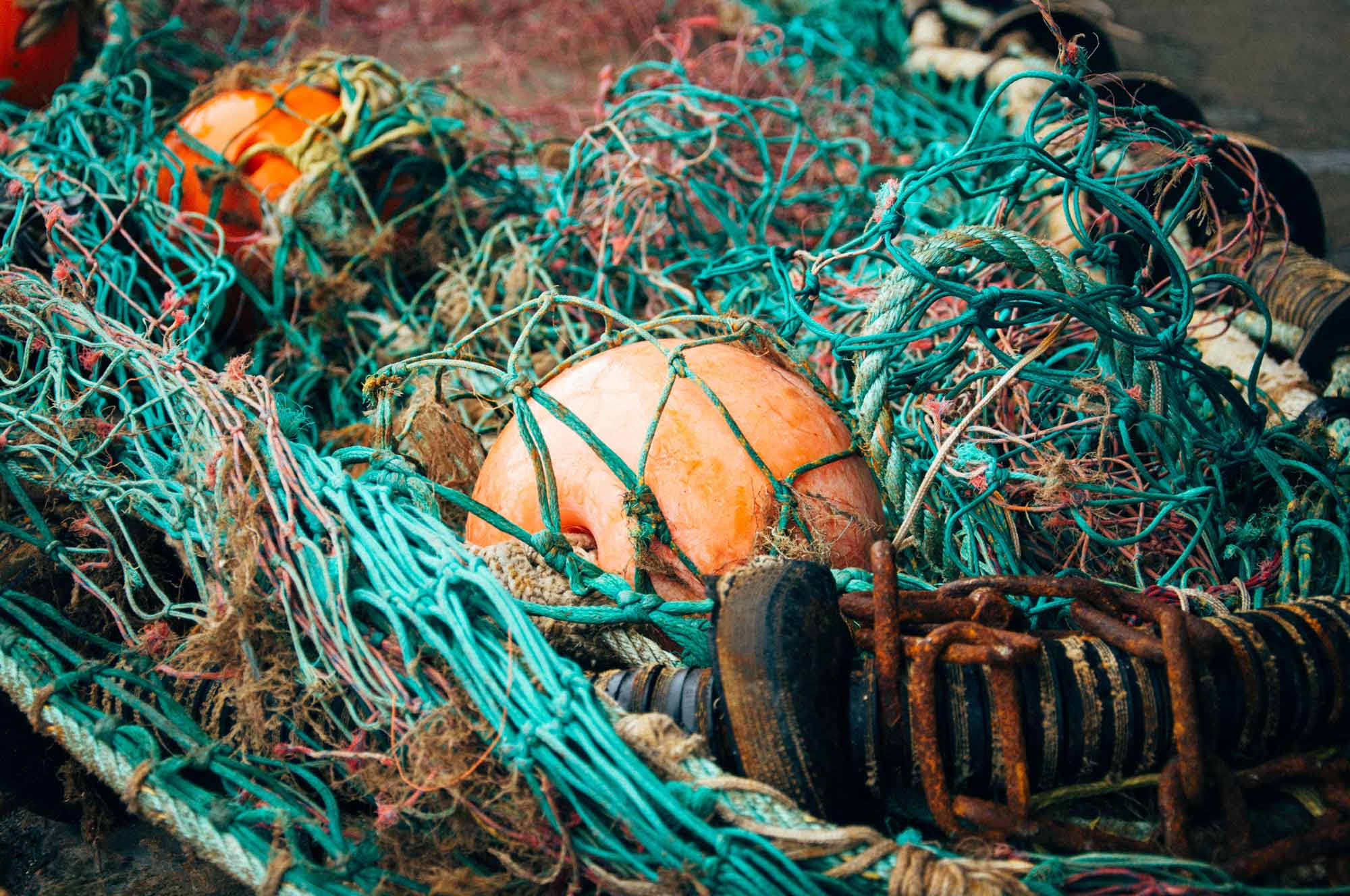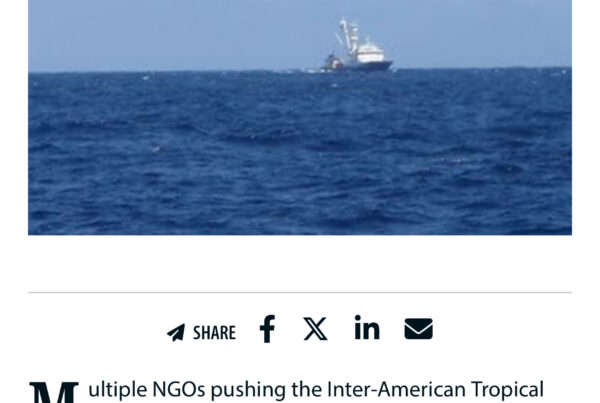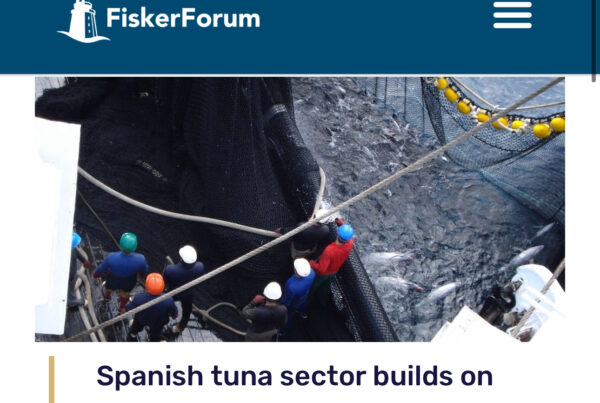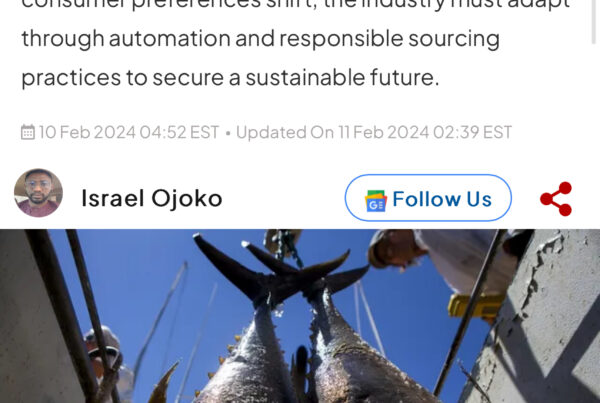ISSF Report Finds Majority of Tuna Stocks Don’t Meet Marine Stewardship Council Standards
A new report by the International Seafood Sustainability Foundation (ISSF) has found that only eight of 23 major commercial tuna stocks avoid overfishing and maintain biomass targets when measured against Marine Stewardship Council (MSC) standards.
The report, “An Evaluation of the Sustainability of Global Tuna Stocks Relative to Marine Stewardship Council Criteria,” found that only Western Atlantic skipjack, North Atlantic albacore, South Atlantic albacore, Eastern Atlantic bluefin, Western Pacific skipjack, Eastern Pacific yellowfin, Eastern Pacific skipjack, and Indian Ocean skipjack achieve a passing score for “sustainable fish stocks” when measured against MSC criteria. According to ISSF, an increased number of stocks failed to meet the MSC standard because managing bodies failed to implement harvest-control rules within the past year.Continue reading here (Source: SeafoodSource).
Amata Raises Concerns About Massive New National Marine Sanctuary
U.S. Congresswoman Uifa’atali Amata is raising urgent concerns about President Joe Biden’s initiation of an enormous new National Marine Sanctuary or NMS for 777,000 square miles around the Pacific Remote Islands. She questions why the administration made no effort to discuss this issue with the Pacific delegations or to notify them even at the recent IGIA forum that such a drastic change to our way of life was even being considered.
“What changed? Why were we not given the courtesy of a discussion or even advance notice of this policy?” she asked in a letter Thursday to Secretary of Commerce Gina Raimondo and Secretary of the Interior Deb Haaland. “I strongly oppose any new National Marine Sanctuary designations in the Pacific, especially ones that are implemented by executive order without consultation with native Samoans and other Pacific Islanders who have cared for and relied on these waters for millennia. This action would destroy American Samoa’s fishing industry, which makes up about 80 percent of our local economy, contribute to regional food insecurity, and do nothing to address the predatory IUU fishing practices of the Chinese Communist Party.” Continue reading here (Source: Marianas Variety).
Ecuador Court Says Congress Can Pursue Impeaching President
Ecuador’s Constitutional Court ruled Wednesday the opposition-dominated National Assembly can take up the question of whether to impeach President Guillermo Lasso over allegations of crimes against state security and corruption.
The ruling was only a first step. The congress still must follow a formal process that requires the presentation of evidence and arguments before legislators may vote on impeachment.
The court, which is the interpreter and guarantor of Ecuador’s constitution, gave the go-ahead for impeachment proceedings on a 6-3 vote by the justices. Continue reading here (Source: AP News).
Fisheries Surveillance Ramps Up in Marshall Islands
The Marshall Islands is making use of a “maritime domain awareness platform” developed by a New Zealand company to identify suspected illegal fishing activity in the western Pacific.
Information gleaned by Marshall Islands Marine Resources Authority fisheries surveillance officers led to Thailand banning a tuna carrier vessel from unloading its US$7 million cargo last month based on concern for alleged illegal fishing activity in Kiribati. Continue reading here (Source: Marianas Variety).
Century Tuna Launches ‘Saving Our Seas’ Campaign
The Philippines has one of the world’s richest marine biodiversity centers in the world, and yet the country is losing its greatest treasure due to plastic pollution.
Century Tuna, the leading canned tuna brand in the Philippines, puts a spotlight on this urgent concern as it launched the “Saving Our Seas” campaign in Mabini, Batangas.
“Plastic pollution is one of the most pressing environmental issues we have today and as part of Century Tuna’s mission to give back to our planet and our seas, we launched the ‘Saving Our Seas’ initiative to help the fight against plastic pollution, especially in our Philippine Seas,” said Century Pacific Food Inc. (CPFI) Vice President and General Manager for Branded Tuna Business Carlo Endaya. Continue reading here (Source: The Manila Times).
Vietnam’s Seafoods Exports in 1st Quarter Drop on Weak Global Demand
The value of Vietnamese seafood exports slumped 27 percent in the first quarter from a year earlier to 1.85 billion U.S. dollars as inflation in most countries has soared to multi-year highs, denting global growth and exacerbating weak demand, Vietnam News Agency reported on Monday.
The Vietnam Association of Seafood Exporters and Producers (VASEP) said shipments of shrimps, a key earner, posted a year-on-year plunge of 40 percent in the first three months to 577 million dollars, catfish exports tumbled 32 percent to 447 million dollars, and tuna shipments fell 31 percent to 179 million dollars.
Sales of other wild-caught fishes, the only bright spot in otherwise sluggish seafood exports, edged up 3 percent to 435 million dollars, said VASEP. Continue reading here (Source: China.org.cn).
Understanding the Indo-Pacific: The Island Way
In the last decade, governments around the world have determined that the next major geopolitical shift will emerge and be decided in the Indo-Pacific. The United States, China, India, and others have crafted maritime strategies toward the Indian and Pacific Oceans. Developments in and around the island nations in these oceans—from Sri Lanka to the Solomon Islands—are therefore important to great power competition in the twenty-first century. But these island nations are often ignored. They are not at the forefront of shaping the Indo-Pacific agenda, despite it being very much about and influenced by them.
In an effort to better study the perspectives and ideas of leaders and policymakers from island nations, the Carnegie Endowment for International Peace and the Sasakawa Peace Foundation, Tokyo hosted “Ocean Nations: The 2nd Annual Indo-Pacific Islands Dialogue” in September 2022. This article is based on the conversations, discussions, and themes that emerged from the event. Continue reading here (Source: Carnegie Endowment).



